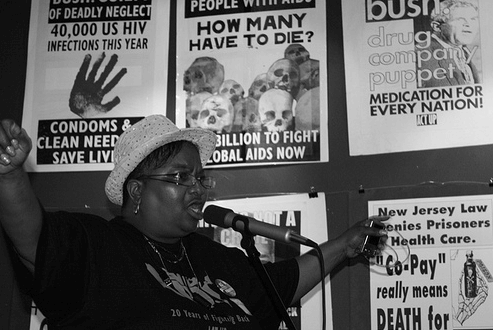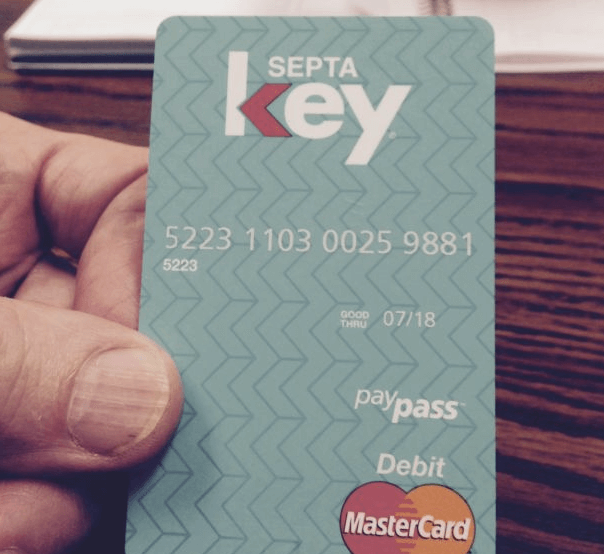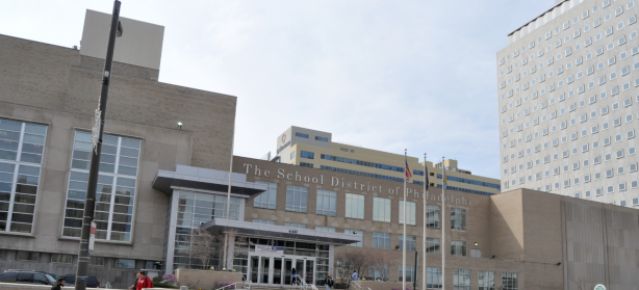On World AIDS Day Monday, Waheedah Shabazz-El, a long-time community activist and virus carrier, will receive the D. Rick Britt Award at the 11th annual Red Ribbon awards presented by the University of Pennsylvania. Shabazz-El, a founding member of the US Positive Women’s Network, spoke with Metro about the local fight against the virus.
What is it like living with AIDS now?
Shabazz-El: Personally, for me, ten years ago I thought it was the end of the world. Ten years ago everything was dark. The woman I am today is not the same woman that got that diagnosis. That woman had to die so this woman could live. It’s been a process and it’s different for everybody. … My quality of life is entirely different. My relationships are better. I have the best doctors, I’ve met friends around the world. I don’t feel alone anymore. It’s a very isolating feeling when you first contract this disease because of the stigma that comes with the disease. … that somebody had to do something very, very bad somewhere along the way. … but most of us just had sex and sex is good. For most of us our highest risk was falling in love. … the stigma goes up and down. … and I think the healthcare has definitely improved. Are you optimistic that the fight against AIDS can be won?
Shabazz-El: We’re going to a have a vaccine, but for people that are HIV-negative. But as a person living with HIV, the vaccine won’t work for me. And there are different levels of cure. A cure could mean that instead of taking medicine everyday I could take it once a month. But we’re on the horizon, but nothing happens without the resources. We’ve done 30 years of research and we know what this is, we know how to manage it, and we know how to end AIDS, but it’s going to take resources. It’s going to take a human-rights approach and not looking at people as though they don’t deserve to have these services because they did something wrong. What’s the status of the virus in Philadelphia?
Shabazz-El: There are certain communities that are doing better than other communities, but then certain communities have certain vulnerabilities. There are factors that you can’t separate from HIV. We’re not able to separate poverty. We found out we’re not able to separate intimate partner violence from HIV now because of federal work rules now studying the intersection of women and HIV and trauma. For people who have no healthcare you can’t separate from HIV. Truancy is a factor for HIV. So I’ve learned through my advocacy that HIV is positive proof of social and economic disparity. … those impacted the most by it are those who have experienced homelessness, who have experienced incarceration, low levels of education and poverty. What can be done about those several inseparable causes?
Shabazz-El: The cornerstone to HIV prevention is affordable, stable housing. People who live in shelters who are HIV-positive are not taking medication, people who don’t have a place to store medicine or eat properly or have good hygiene are not going to become healthy, productive citizens again. Why were you recognized?
Shabazz-El: My award is for community representation in several decision-making places. I was appointed as an official delegate to the United Nations. I was invited to a reception with President Barack Obama. I spoke at World AIDS Day 2007 at the Grave site of Dr. Martin Luther King Jr. I’m a local person who has done international work. I’m a grassroots organizer and I’m able to deliver a message about HIV in a human-rights framework and through a gender-lense for women.
AIDS activist talks virus’ status in Philadelphia on World AIDS Day

Twitter































